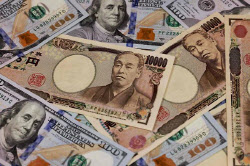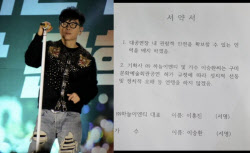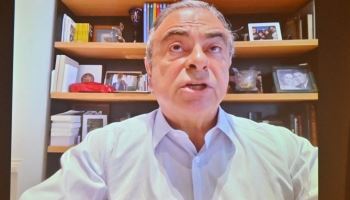지난달 영국계 연금펀드 `헤르메스`가 주가조작 혐의와 관련, 무죄판결을 받은 사실은 한국 사회에 상당한 반향을 불러일으켰다.
외국계 펀드에 대해 가해진 첫 법정공판인 이번 사건은 모든 한국인의 이목을 집중시키기에 충분했다. 그 법정 공판 앞에서 모두가 가졌던 기대는 "법정에서 판결이 진행된다 것은 관계당국이 상당한 물증을 확보했기 때문에 가능했을 거야"였다.
그러나 너무나 당황스럽게도 검사들은 이번 헤르메스 건은 불법적인 사항을 찾아볼 수 없다고 판결했다.
도대체 무엇이 잘못 꼬인 것일까?
사건은 모 신문사가 2004년 12월 1일 헤르메스와 단독 인터뷰를 한데서 발단됐다. "삼성물산은 외국의 적대적 합병에 취약한 구조를 갖고 있는 듯 하다"는 내용의 발언이 헤르메스 경영진의 이름으로 이 신문에 기사화 된 것이다. 다음날인 2일 신문이 나오자 삼성물산의 주가는 무려 3.6% 나 뛰어 올랐다. 그리고 그 다음날 헤르메스는 5% 주식 즉 보유하고 있던 전량의 삼성물산 주식을 팔아 미화 2800만 달러의 이득을 올렸다.
외국계 펀드가 `사탄`의 증거나 다름없다고 믿는 이들은, 이번에는 외국인들이 챙겨도 너무 심하게 챙겼다고 생각했다.
물론 고의적인 주가조작은 분명 불법이다.
이 사건으로 언론과 정치인들은 비판의 목소리를 높였고, 금융감독위원회는 강도 높은 감사에 들어갔다. 사건은 검찰로 넘겨졌고, 검찰은 로버트 클레멘트의 체포영장을 발부받았고, 벌금 73억원에 그를 기소했다.
관계당국의 이 같은 행동은 섣부른 감이 없지 않다. 결과적인 이야기이지만, 합리적은 증거를 갖추지 못한 채 외국계 펀드에 대한 사회전반의 편견만을 드러낸 것으로 보이기 때문이다.
한국에의 전언 : 만약 사회의 정의라는 것이 군중 심리 혹은 감정적 증거에 의존한다면 그리고 그러한 감정이 여과 없이 받아들여진다면 이는 군중 정치와 다를 바가 없어진다. 이를 극복하지 않고선, 건전한 사회를 건설하거나 금융의 허브로 자리매김하는 데는 분명 어려움이 있을 것이다.
이 사건과 관련한 합리적인 증거는 과연 무엇이 있었나?
여기서 우리가 짚어볼 수 있는 것은 기자는 분명 영어로 말하지 않았고, 인터뷰를 한 사람 역시 한국어로 말하지 않았다. 통역가가 함께 있었다. 적대적 인수세력에 대해 수 차례 질문을 던진 이는 헤르메스측이 아니라 기자였다. 클레멘트씨는 이에 대해 전혀 알지 못한다고 답했지만 질문공세가 계속되자 이에 대해 좋은 아이디어일 수 있겠다고 말했을 뿐이다. 주가를 올리기 위한 고의적인 시도라고는 보기 힘든 부분이다.
기자 역시 잘못이 없다고는 말하지 못할 것이다. 단순히 기자가 오해를 했건 혹은 오역을 했건 분명한 것은 헤르메스가 불법적 행위를 하지 않았다는 점이다.
이처럼 판단할 수 있는 근거는 무엇인가?
녹취록이 남아있기 때문이다.
금감위가 만약 이 녹취록을 좀 더 빨리 들어보았더라면 이 같이 돈과 시간을 낭비하는 일은 일어나지 않았을 것이다.
나는 나 스스로를 거의 한국인이 됐다고 여겨왔다. 한국인인 나 마이클 브린은 헤르메스건과 관련하여 안타까운 마음을 금할수 없다. 한국인 마이클 브린으로서 말이다. 헤르메스가 치른 법정비용과 허비된 시간, 손상 입은 평판과 이로 인한 스트레스에 대해 아쉽고 애타는 감정이 들며, 이에 대해 유감으로 생각한다고 전하고 싶다.
왜냐하면, 나를 포함한 우리 모든 한국인은 외국계 투자가들에게 우리나라를 편견 가득한 나라, 군중 심리에 의해 자본주의를 공격하고, 반감 때문에 외국계 펀드를 수용하지 못하는 나라로 보이고 싶은 마음이 추호도 없기 때문이다.
마이클 브린(인사이트 커뮤니케이션즈 컨설턴츠 대표이사)
<영어원문>
Column Title: What Went Wrong With Hermes?
The announcement last month that the British pension fund Hermes had been found not guilty of stock manipulation came as a big surprise.
This was the first legal case against a foreign fund, so you would have expected authorities to have been sure before bringing it.
But prosecutors said they found no wrongdoing.
What went wrong?
The story began with an interview on December 1, 2004, in which a Hermes executive was quoted as saying that Samsung Corporation may be vulnerable to a hostile foreign acquisition.
On December 2, when the newspaper came out, Samsung Corporation shares went up 3.6 percent on the news. The next day, Hermes sold its 5 percent stake in the company and made a profit of US$28 million.
Press and politicians started shouting and the Financial Supervisory Commission conducted an in-depth investigation. Its head publicly demanded punishment and referred the case to the Prosecutors Office which issued an arrest warrant for the executive, Robert Clement, and called for a KRW 7.3 billion fine.
In retrospect, this confidence was misplaced. It was a reaction to public animosity to foreign funds and was not based on any rational evidence.
Memo to Korea: A system of justice that accepts public animosity as emotional evidence is known as mob rule. We can’t build a sensible society, let alone a financial hub, until we get rid of it.
That said, what was the rational evidence presented in the case?
Apparently, the reporter did not speak English and the interviewee did not speak Korean. So they had an interpreter. It was the reporter, not the Hermes representative who asked several times about a possible hostile takeover. Mr. Clement said he didn’t know about this, but, when pushed, said he thought it would be a good idea. This hardly amounts to deliberate attempt to boost the share price.
Mr. Clement’s mistake was to break two basic PR rules: The first rule of interviewing is, don’t answer a hypothetical question. The second is, don’t criticize another company. The reporter also was at fault &8211; either because of misunderstanding or mis-translation. But no-one committed a crime.
How do we know this?
There’s a tape recording.
If the FSC had listened to it in the first place, they might not have wasted so much time and money.
But on behalf of Korean, I would like to offer an apology to Hermes - “I’m sorry what happened.” That, and an offer to pay for their legal costs, and compensate for time wasted, reputation damage and general stress.
After all, I actually we, Koreans don’t want foreign investors to think that we are prejudiced.
By Michael Breen(The president of Insight Communications Consultants)








![[포토]은행권 소상공인 금융지원 간담회](https://image.edaily.co.kr/images/Photo/files/NP/S/2024/12/PS24122300609t.jpg)
![[포토]인사청문회 출석한 마은혁 헌법재판관 후보자](https://image.edaily.co.kr/images/Photo/files/NP/S/2024/12/PS24122300404t.jpg)
![[포토]아침 영하 10도, 꽁꽁 얼어붙은 도심](https://image.edaily.co.kr/images/Photo/files/NP/S/2024/12/PS24122300843t.jpg)
![[포토]스케이트 타는 시민들로 북적](https://image.edaily.co.kr/images/Photo/files/NP/S/2024/12/PS24122200317t.jpg)
![[포토]기름값 10주째 올라…전국 휘발유 평균 1652.2원](https://image.edaily.co.kr/images/Photo/files/NP/S/2024/12/PS24122200258t.jpg)
![[포토]크리스마스 분위기](https://image.edaily.co.kr/images/Photo/files/NP/S/2024/12/PS24122200248t.jpg)
![[포토]'서울광장 스케이트장 좋아요'](https://image.edaily.co.kr/images/Photo/files/NP/S/2024/12/PS24122000768t.jpg)
![[포토] 나인퍼레이드 캠페인](https://image.edaily.co.kr/images/Photo/files/NP/S/2024/12/PS24122000496t.jpg)
![[포토]더불어민주당 최고위원회의 개최](https://image.edaily.co.kr/images/Photo/files/NP/S/2024/12/PS24122000232t.jpg)


![[포토]안소현-김성태 본부장,취약계증 후원금 전달식 진행](https://spnimage.edaily.co.kr/images/vision/files/NP/S/2024/12/PS24121400036h.jpg)


